No products in the cart.
Coffee
La Candelilla: Family Produced Coffee for Five Generations
La Candelilla Estate is in the town of La Sabana, just south of the Pirris River. It is part of the Tarrazu region of Costa Rica, high in the Talamanca Mountains. The rich volcanic soil and dry summers produce exceptional coffee. This farm covers 80 hectares with 68 planted for coffee. Primarily Caturra and Catuai varieties are grown, but there is Typica, Arabigo, SL-28, and Geisha as well. You will see Poro and Banana intercropped to provide shade.
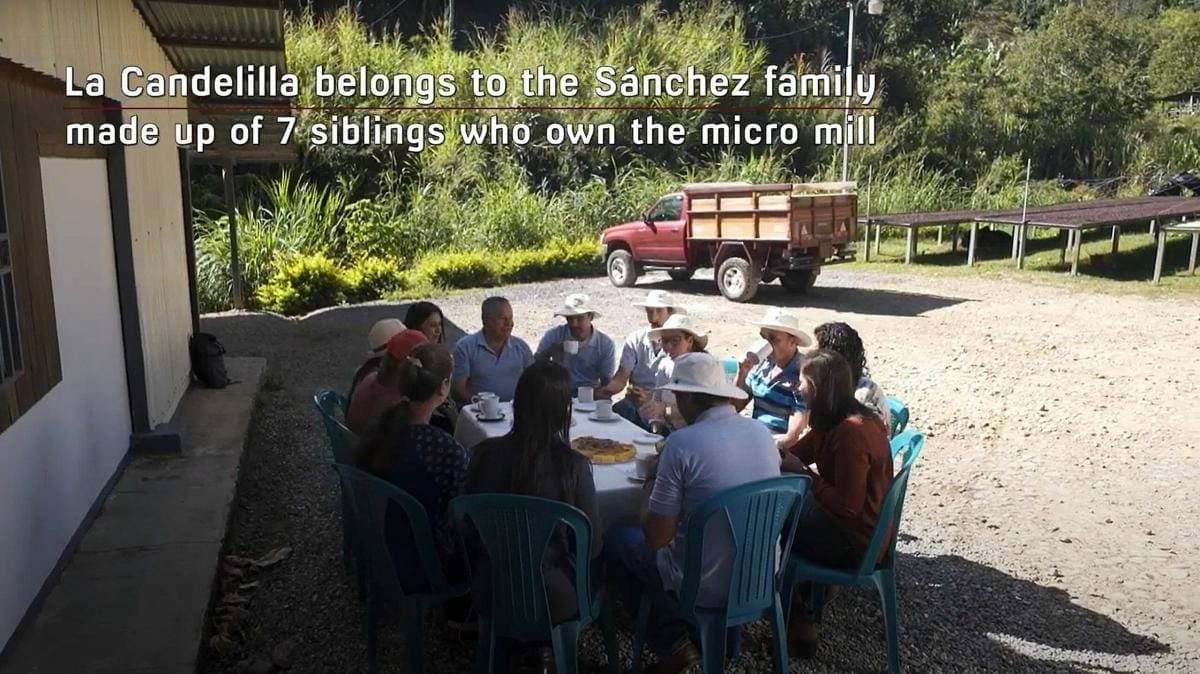
The mill and farms are owned and operated by the Sanchez Family. Today, there are seven siblings primarily responsible for the management and operation of the coffeelands and mill. Ana, Luisa, Elsa, and Miriam are the Cuatro Hermanas (four sisters) and Pablo, Mario, and Didier are their brothers. They are the third generation of coffee producers here, with two more generations learning the trade. Their great-uncle named the estate “La Candelilla” after the fireflies that illuminate the farm on summer nights.
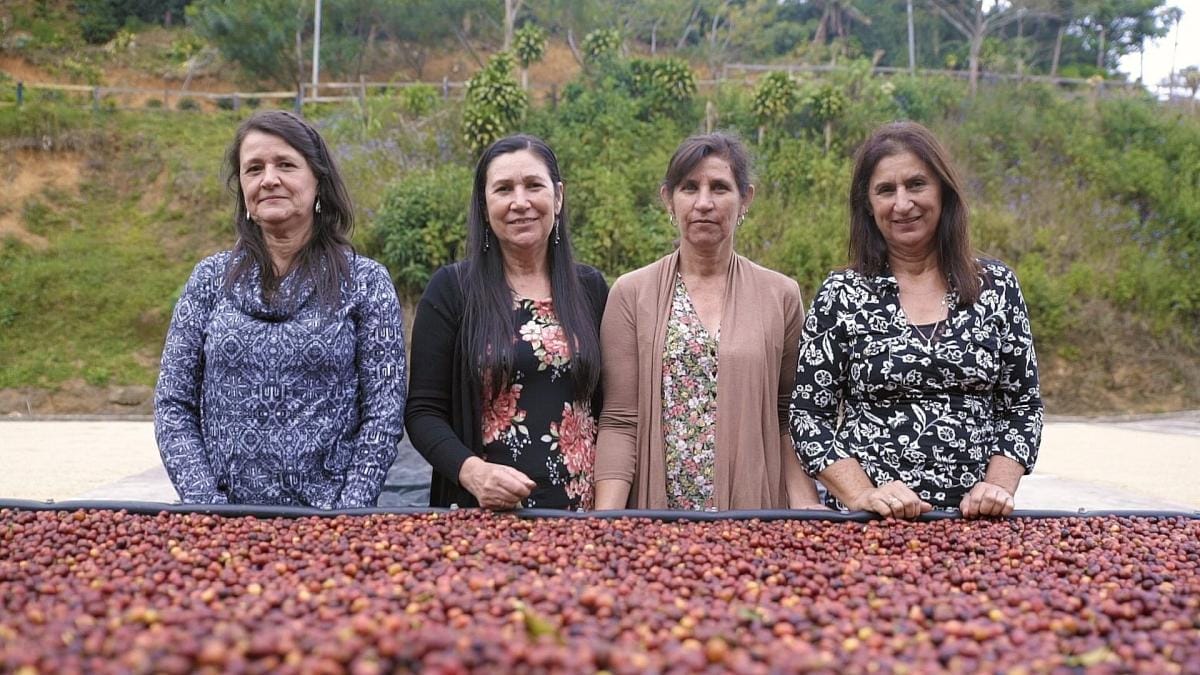
This year is the first time Royal NY will be working on providing microlots exclusively from the farms operated by the Cuatro Hermanas (four sisters) – Ana, Luisa, Elsa, and Miriam. In an industry dominated by male producers, these women stand out as some of the best. When asked why they continue to work the farms, they explain; “We are motivated by the love our parents have for coffee production and the desire to transfer all that passion to our children.”
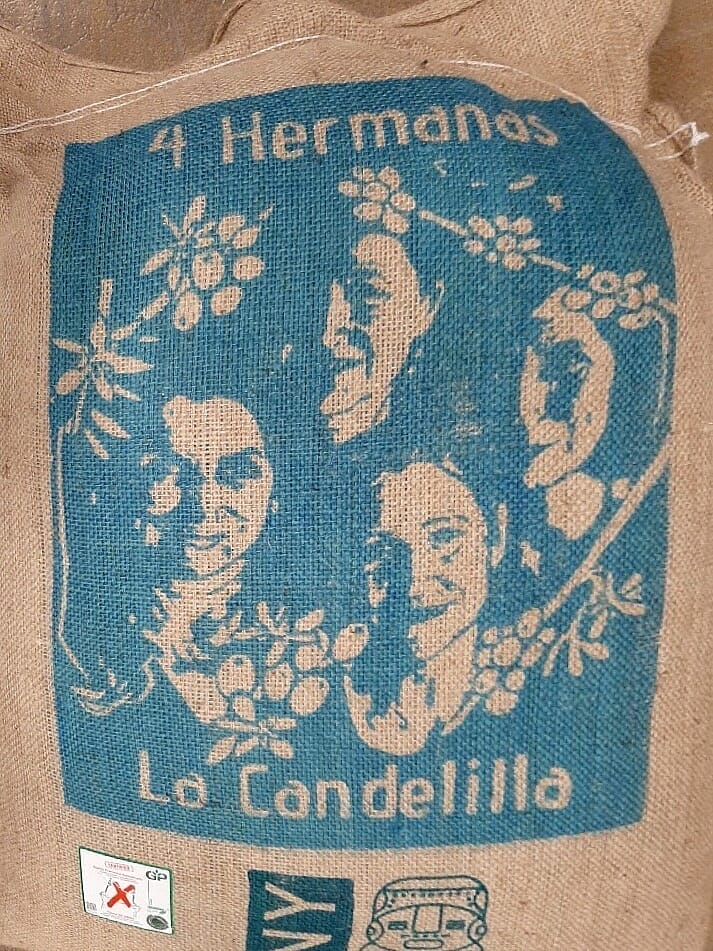
When their parents, Mario and Lidia, left them the land, the siblings were operating independently of each other, but in the late ’90s coffee prices were incredibly low. As a result, the larger cooperative mills were offering low prices for unprocessed coffee cherries from farmers. The Sanchez family decided that, together, they should take over the processing of their coffee to produce higher quality coffee and to increase their profitability by not ceding any value to the cooperatives. In December of 2000, the family started La Candelilla Micromill, the first of its kind in Costa Rica.
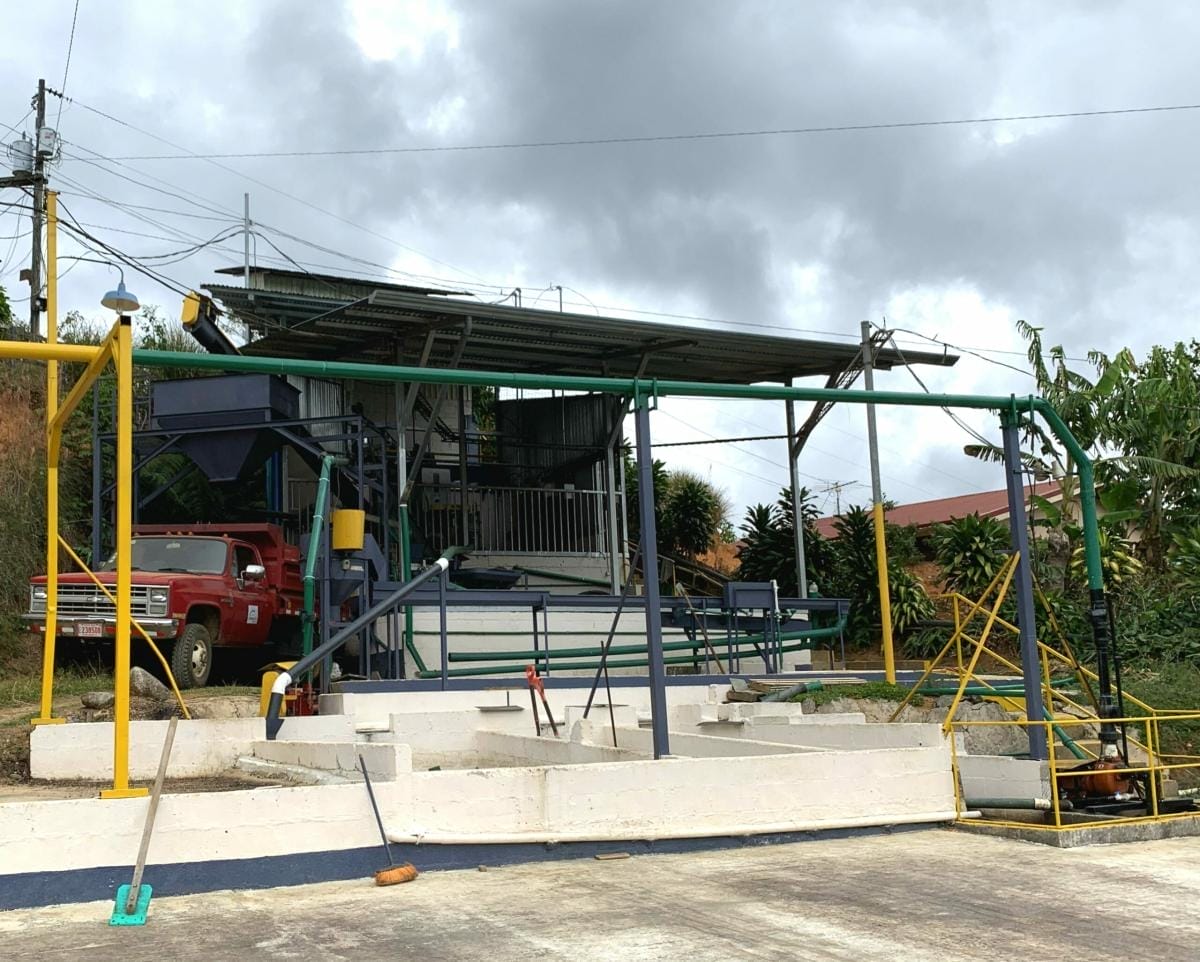
In the beginning, it was difficult to execute the quality of processing they desired. The small micro-milling equipment was hard to come by, and the standards for using it did not exist. In the last 20 years, more advanced milling equipment has been designed and tailored to the needs of other micro-mills. Today, there is much greater access to equipment for farmers looking to open a micro-mill because of a growing market of second-hand equipment.
The initial investment in equipment was high for the family. It was about $30,000 for a screen, depulper and demucilager. Since then, they have continued to invest over $70,000 for structural improvements and better equipment. Mechanical driers would have been even more, an additional $60,000. They are common across the country for producing washed coffee since drying space is generally limited. The price of land is high because of the large amount that is protected and the large adventure and eco-tourism markets. In most cases, the available space is better utilized only for natural and honey processed coffees that will fetch a higher premium.
La Candelilla still dries its washed coffee the old fashioned way – on patios in the sun. Meticulously turned, the slow and even drying increases the complexity of the coffee. They must be vigilant to constantly rake the coffee and always cover the patios whenever it begins to rain. For more information about the Washed Processing Style, click here.
Their careful attention paid off this year! We scored Washed Tarrazu La Candelilla 84.50 when we cupped it. It tasted like oranges and allspice with honey sweetness. It is available for purchase here.
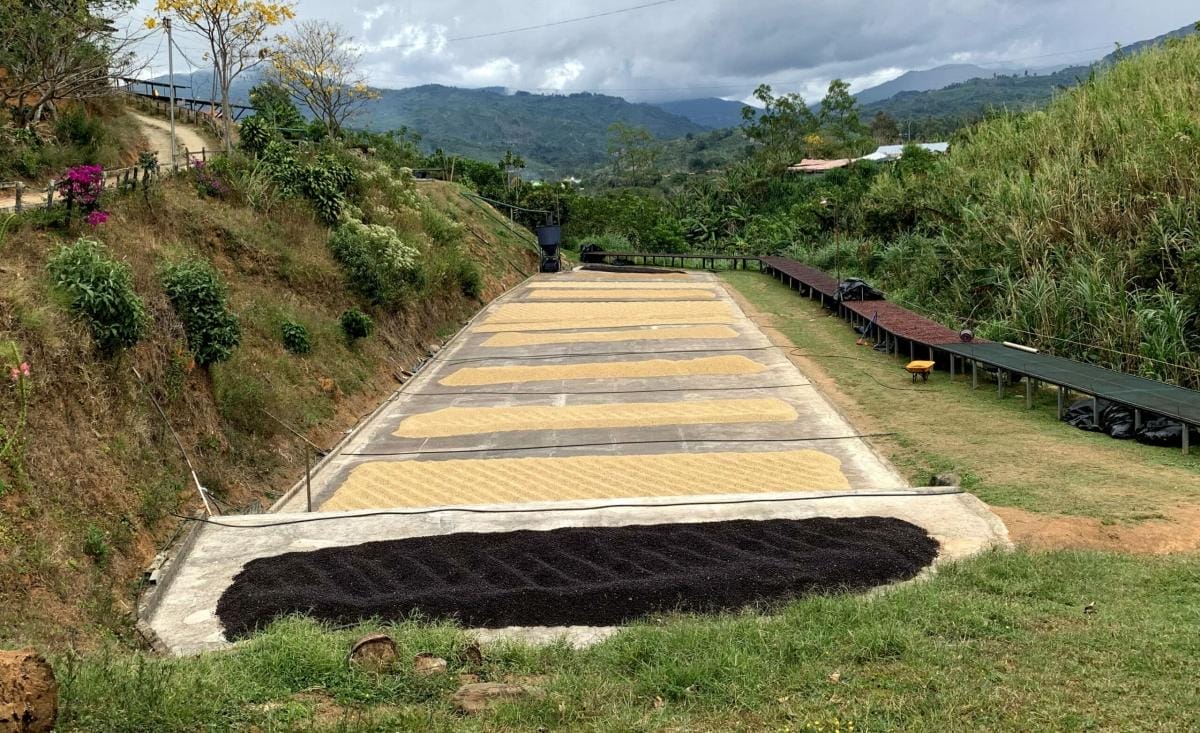
La Candelilla pioneered the refinement of natural and honey processing. These processes create a more fruit-forward coffee that is clean and sweet when executed properly. Naturals and honeys are more susceptible to defects and take considerably more time to produce.
Naturally processed coffees are dried with the entire cherry intact. The process may take up to a month with careful attention to prevent the growth of mold or bacteria. For more information about the Natural Processing Style, click here.
This year’s Natural Las Hermanas de La Candelilla are incredibly sweet and creamy with notes of jam and watermelon. We scored it 86.25 on the cupping table! It is available for purchase here.
Honey processed coffee is pulped, removing the fruit of the cherry, but the sugary mucilage layer is left (mostly) intact. Honeys may be white, yellow, red, or black based on the color they turn when they dry in the sun. For more information about the Honey Processing Style, click here.
This year, we received Las Hermanas de La Candelilla’s Red Honey. We tasted apricot, raspberry, red apple, and honey in this coffee and scored it 85.25. It is available for purchase here.
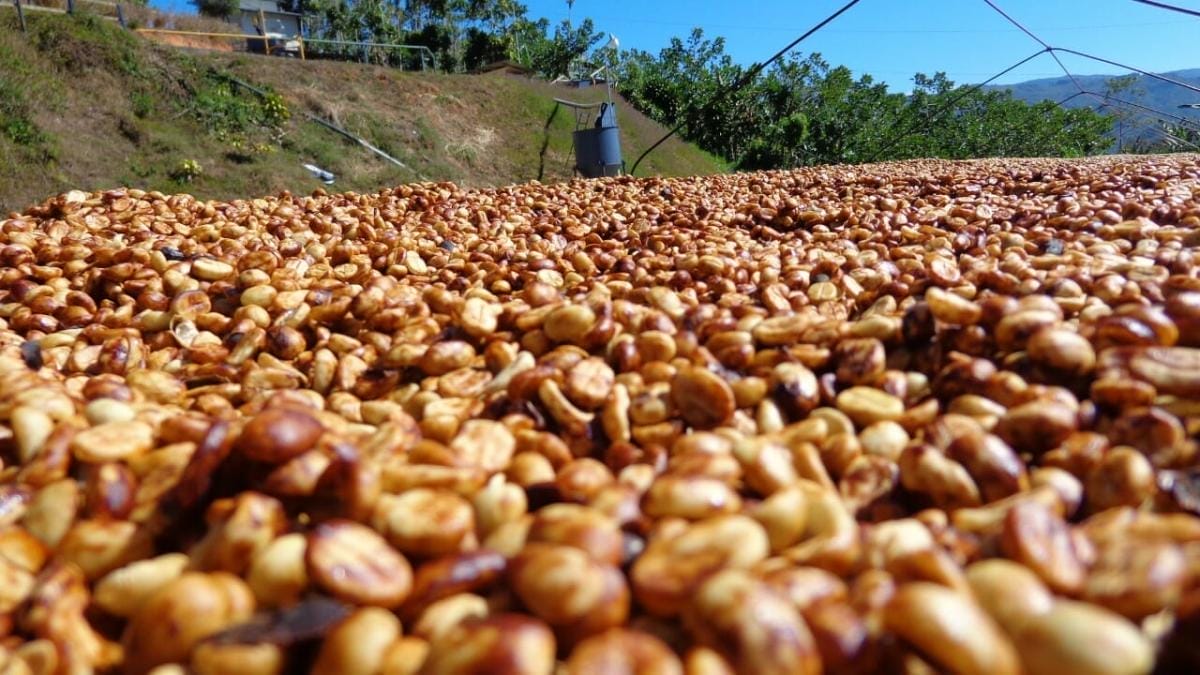
The Sanchez Family operates La Candelilla to produce world-class coffee. Their care and attention to detail are evident in the coffee that has arrived this year. Their deep roots in coffee farming and recent advancements in coffee processing have created a coffee that will be a pleasure to drink as a pour over, espresso, or cold brew.



